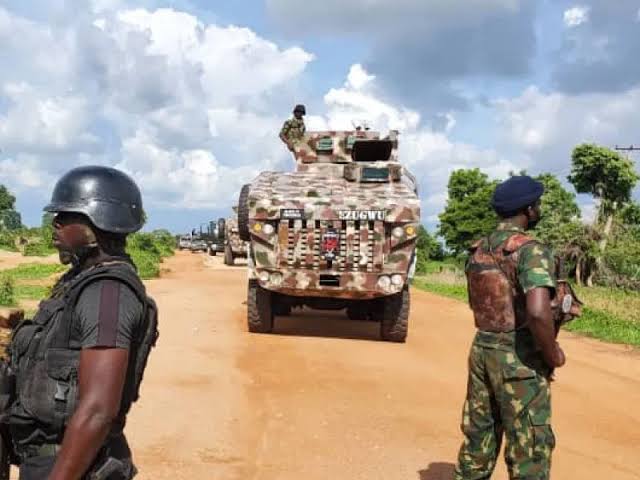On June 12, 2025, Yelwata village in Guma Local Government Area of Benue State, Nigeria, was struck by a devastating attack that claimed at least 100 lives, marking one of the deadliest incidents in the region this year. The assailants, suspected to be armed herders, launched a coordinated assault, leaving homes destroyed and communities in mourning. This tragedy has intensified calls for decisive action to address the recurring violence in Nigeria’s Middle Belt.
Major General Moses Gara, Commander of Operation WHIRL STROKE (OPWS), visited the affected areas, including Yelwata, Tse-Mtwemem, Daudu, and Iye, on June 14, 2025, to assess the situation and reassure residents. Describing the attacks as “barbaric and unacceptable,” Gara vowed that the Nigerian Army would relentlessly pursue the perpetrators to ensure justice. He emphasized the military’s commitment to restoring peace, with additional troops deployed to strategic locations to prevent further violence.
The Benue killings are rooted in long-standing conflicts over land and resources, primarily between indigenous farmers and nomadic herders. These disputes, often exacerbated by ethnic and religious differences, have fueled a cycle of reprisal attacks across the state. The June 12 attack follows a pattern of violence that has displaced thousands and strained local resources, with Guma and other LGAs bearing the brunt of the crisis.
In response, the Nigerian Army has intensified intelligence-gathering efforts to track the attackers, who are believed to operate from remote areas. General Gara called for community collaboration, urging residents to provide credible information to aid military operations. However, locals have expressed frustration over perceived delays in response times, highlighting the challenges of securing vast rural areas.
The military’s pledge comes amid growing public outcry over the government’s handling of insecurity in Benue. Civil society groups and local leaders have criticized the lack of sustainable solutions, pointing to the need for dialogue and policy reforms to address the root causes of the conflict. Governor Hyacinth Alia has also condemned the attacks, promising support for victims and displaced persons.
Security analysts note that the violence in Benue is part of a broader national challenge, with banditry, insurgency, and communal clashes overwhelming Nigeria’s security forces. The Middle Belt, a region rich in arable land, remains a flashpoint due to competition over diminishing resources, worsened by climate change and population growth. Efforts to mediate between farmers and herders have yielded limited success, with trust deficits hindering progress.
During his visit, General Gara inspected damaged infrastructure and met with community leaders to discuss immediate needs. He assured residents that the military would maintain a visible presence to deter further attacks, with checkpoints established along key routes. However, the scale of the crisis has raised questions about the adequacy of current troop deployments.
Victims of the Yelwata attack are receiving aid from state and non-governmental organizations, though relief efforts are hampered by logistical challenges. Displaced families, many of whom lost their livelihoods, are sheltering in temporary camps, where conditions are reportedly dire. The state government has appealed for federal assistance to address the humanitarian fallout.
The Nigerian Army’s operation in Benue is part of a broader counter-insurgency framework, including Operations Safe Haven and Whirl Stroke, designed to tackle insecurity in the North-Central region. Despite these efforts, the persistence of attacks underscores the complexity of the crisis, with armed groups exploiting ungoverned spaces. Gara reiterated that the military would adopt a proactive approach, combining kinetic and non-kinetic measures to restore stability.
Local residents, while appreciative of the military’s assurances, remain skeptical due to past unfulfilled promises. Many have called for the establishment of community-based security outfits to complement federal efforts, a proposal that has sparked debate over potential risks. The federal government, meanwhile, faces pressure to implement its National Livestock Transformation Plan, aimed at modernizing herding practices to reduce conflicts.
The June 12 attack has also drawn attention to the plight of women and children, who are disproportionately affected by the violence. Reports indicate that several children were among the casualties, with others separated from their families during the chaos. Humanitarian agencies are working to reunite families and provide psychosocial support to survivors.




